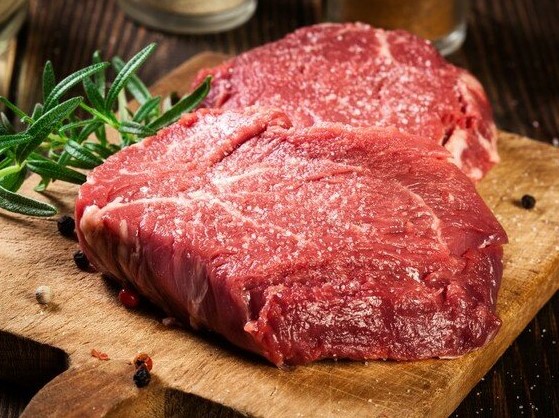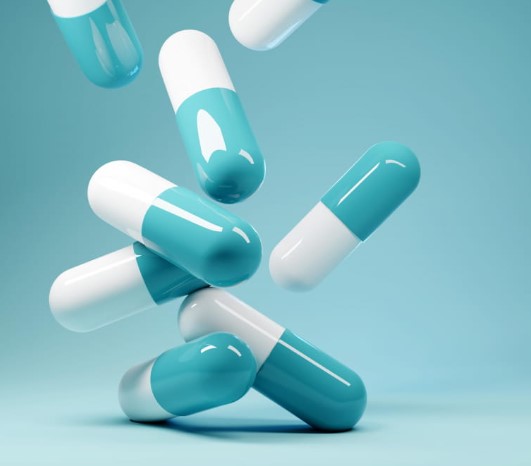Antibiotics in meat: what does it mean and how does it affect our health?

Photo is illustrative in nature. From open sources.
Many of us consume meat in our daily diet without thinking about how it was produced and processed. One of the problems that has become relevant in recent years is the use of antibiotics in animal husbandry. This can have negative health consequences for people who consume such meat.
Antibiotics are used in animal husbandry to prevent and treat diseases in animals. However, according to the World Health Organization (WHO), this practice can lead to the development of antibiotic resistance in bacteria that can be transmitted to humans through meat. This means that when infected with infectious bacteria, treatment may not be effective or even possible due to the bacteria's resistance to antibiotics.
In addition, the use of antibiotics in animal husbandry can lead to environmental pollution, as they can end up in soil and water. This can negatively affect the health of animals and people who live in nearby areas.
As a result, some countries ban the use of antibiotics in animal husbandry or impose strict rules on their use. The European Union, for example, bans the use of antibiotics to promote growth in animals, and also bans certain categories of antibiotics to prevent disease in animals.
How can you protect yourself from meat-related antibiotic resistance? First, you should choose meat from producers who do not useantibiotics in their practice. Secondly, you need to cook the meat properly to kill all bacteria. For example, meat should be well-done or cooked to a temperature sufficient to kill bacteria.
In conclusion, the use of antibiotics in animal husbandry can have serious implications for human health. Therefore, it is important to monitor how the meat we eat is produced and take steps to protect our health.
Read together with it:
- I found a woman who is not embarrassed by my appearanceI often read stories on this site and decided to confess myself. I don’t know how to speak beautifully, and I can’t, to be honest. So don't judge harshly.I was born into a complete family. Father ,mother . Everything is like everyone else. My childhood didn't go well. The father was a domestic tyran...
- The husband decided that it was better to get a divorce than to look for a jobMy husband and I have been married for 5 years. We moved to another city and rented an apartment here. Two years later my beloved appeareddaughter . We lived not without quarrels, but we tried not to find outrelationship with a child. A year agoMy husband was laid off at work and scandals began to h...
- A common-law husband does not need a real familyIn a civil marriage for more than 8 years. Once upon a time, my relatives’ questions about why we don’t officially sign, why the young man doesn’t propose to me, why we don’t have children, irritated me and seemed funny. But now I'm not laughing anymore.I didn't notice it before, but looking back, I...
- Reward for ForgivenessBy 2000, my parents left me without a roof over my head, saying: “It’s okay, you’ll earn money yourself.” Where can a doctor in our country earn an apartment?I wandered around strange corners for 10 years, rented rooms with hostesses, and earned money. I was able to save a little and was looking for...
- Nobody wants to talk to meI am from Moscow. I don't understand why people don't want to communicate with me. I study at an institution where all (okay, not all, but many) students have similar interests.No, I'm not being ignored. I communicate with some people who are happy to see me. But they don't consider me friends. They...
- Mother-in-law violated the will of her late daughter-in-lawI leftmarry a man who has 2 marriages behind him, the first, as usual, broke up due to his youth, the second ended in great misfortune -wife died of cancer.From this marriage there was a little girl left, whom I later adopted. There are two children from his first marriage, whom theyMom kicked them ...
- Mom considers me a second-class citizenI am very offended by my mother.I had a bad luckan affair with one man. I am 26 years old, he is 38. We met on vacation. Hismother runs a hotel for tourists by the sea. He helps her, and I came to rest with them on the advice of friends.It so happened that I really liked him. He is beautifula man an...
- I can't quit because of quarantineI have been working in food production since July last year. At first everything was fine, until after another move inside the office,the general's wife did not sit with him in the office. That's it, it became impossible to work. They scream, scream constantly. They yell and swear. The CEO's wife an...
- Parents do not want to work and demand to support themI come from a large family (7 children, parents and grandmother). To be honest, I’m ashamed to write here about my parents, because I love them. But, at the moment I need advice.Dad is 46 years old and mom is 42. When dad was working,mom was staying at home. When I was in 9th grade, my dad got sick ...
- Family life was not what I imagined it to beI am 31 years old, yeshusband anda child who is only 6 months old, with her husband inThey got married precisely because of pregnancy, but they really wanted a child and are happy that they became parents.But that's justRelations between each other have become very bad lately, there are constant qua...

